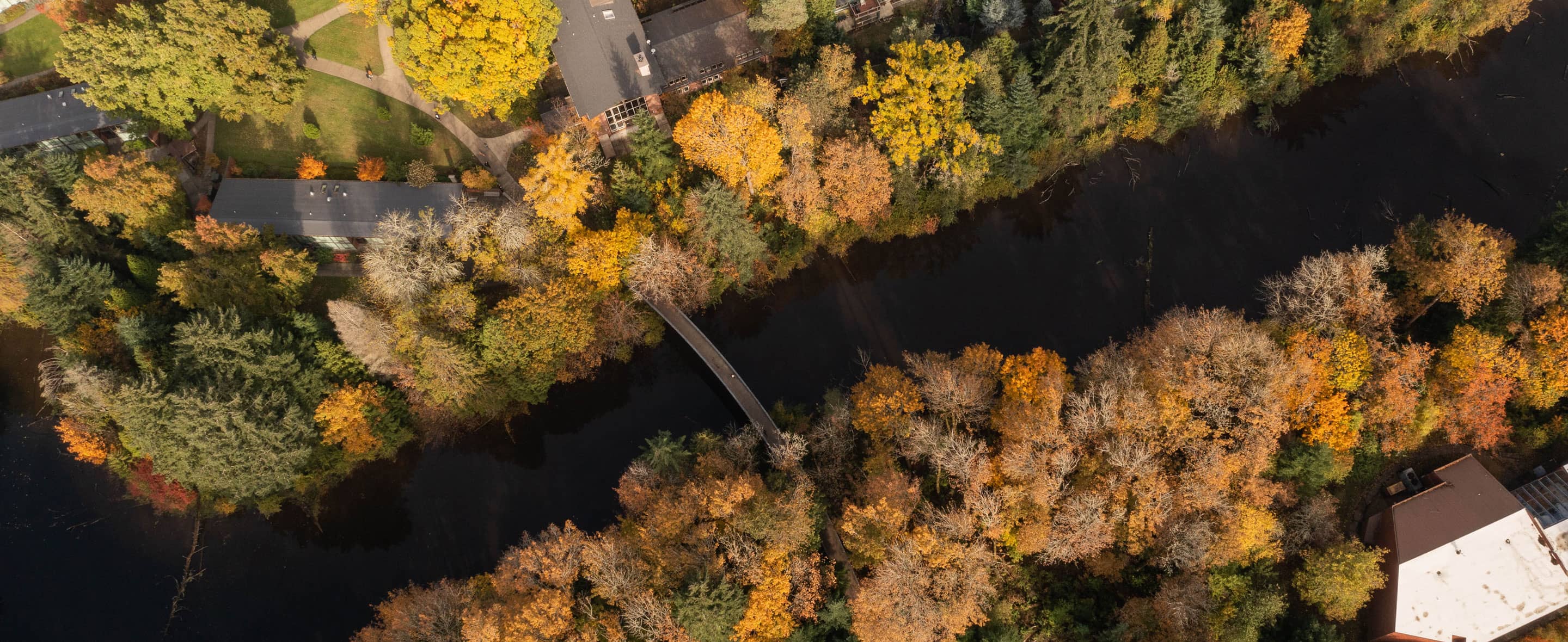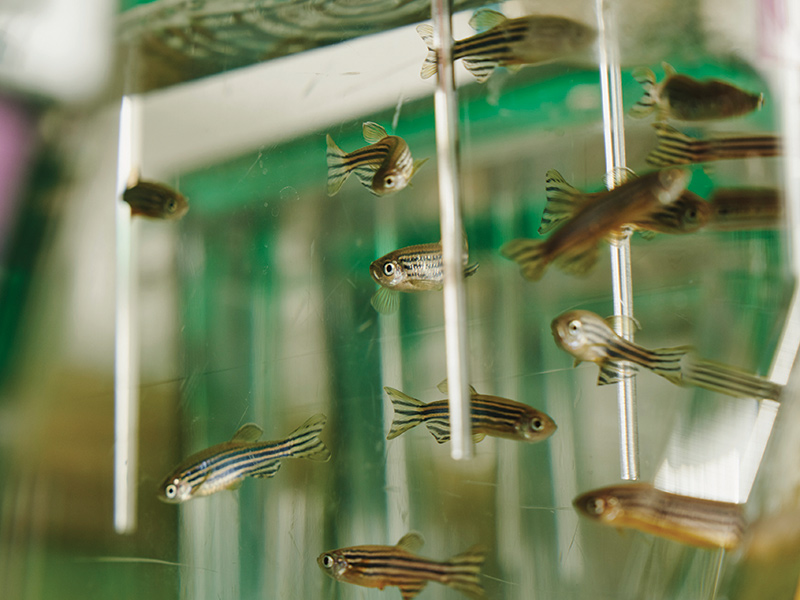Water and the American West with Prof. Josh Howe gave me an entirely new outlook on living in the Western United States. It was also my first time discussing the idea of environmentalism in an academic context.
What You’ll Study in the Bachelor’s Degree in Environmental Studies
Gain an interdisciplinary understanding of environmental themes and issues with the environmental studies major at Reed College. Take courses across Reed’s departments, and choose a concentration in biology, chemistry, economics, history, or political science. Discover our research-focused program that prepares you to address real-world environmental challenges.
Roadmap to the BA in Environmental Studies at Reed
Receive rigorous scientific and humanities training in your major courses. Learn directly from expert professors who explore environmental issues through various lenses, including chemistry and economics. Engage in hands-on research in labs and fieldwork and complete your studies by writing a rewarding senior thesis.
Year One
Lay the Foundation
Begin your journey with introductory science classes, such as Biology 101 and Chemistry 101, which set the stage for deeper exploration in the environmental studies major.
Join your fellow first-year students in Reed’s signature Humanities 110 course. This yearlong class is your first taste of our commitment to interdisciplinarity. Study human history, religion, art, and culture, and discover how it all weaves together and impacts the present.
Why Study Environmental Studies at Reed College?
Interdisciplinary Program with Five Concentrations
The environmental studies program at Reed builds your knowledge of environmental issues through a series of courses in the natural sciences, history, and social sciences and crosses traditional academic boundaries.
The major also provides five concentrations with a specific environmental emphasis—biology, chemistry, economics, history, and political science. Your choice identifies your home department and helps focus your studies:
- ES-Biology: Learn about molecular ecology, vascular plant diversity, or animal behavior.
- ES-Chemistry: Study chemistry-climate interactions or air pollution.
- ES-Economics: Take courses on natural resource economics, urban economics, and environmental economics.
- ES-History: Explore the history of water, nature, culture, society, and food.
- ES-Political Science: Study policy and the environment with classes on environmental politics and policy, international policy, and the politics of food.
Funding for Environmental Studies Majors
Reed College and the environmental studies department offer generous funding for you to make the most of your summer break. The Environmental Studies Summer Experience Fellowship helps pay for internships, fieldwork, and lab work so you can gain research experience on and off campus. The Mason Student Opportunity Fellowship aids in covering the cost of summer projects focused on Reed canyon, a perfect opportunity for environmental studies majors to study local ecosystems.
Careers for BA in Environmental Studies Graduates
Our environmental studies major teaches you real-world skills and interdisciplinary thinking that lead to a wide range of careers, including the following:
- Analyst, LegitScript
- Assistant director of development, University of Pennsylvania Health System
- Fish and wildlife biologist, U.S. Fish and Wildlife Service
- Quantitative research analyst, SEIU 775
- Senior public affairs advisor for oceans and biodiversity, Ørsted
- Senior specialist, adidas
- Senior manager of data strategy, PS AI Labs
- Sustainability coordinator, University of Wisconsin System
Ready for Future Academic Success
Our environmental studies major equips you to enter a prestigious master’s or doctoral program. Recent graduates have studied environmental science, law, public health, and more at the following schools:
- Colorado State University
- Georgetown University
- Johns Hopkins University
- Portland State University
- The University of Baltimore
- University of Rhode Island
- University of Washington

Explore and Study in Reed Canyon
Referred to as the largest classroom on our campus, Reed canyon is a 28-acre watershed teeming with wildlife and native plants. It serves as a living laboratory for environmental studies majors, providing data for projects, labs, and even your senior thesis. Outside of coursework, you can follow hiking trails with friends or find a tranquil spot to unwind and reflect.





